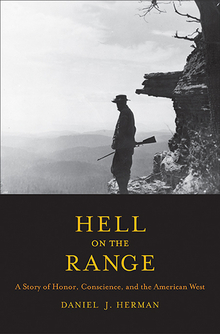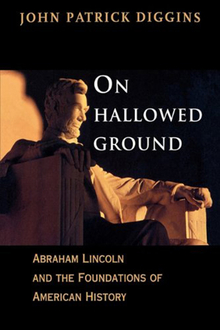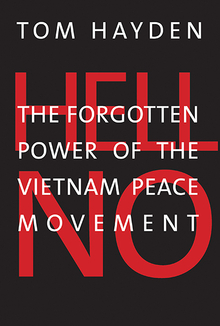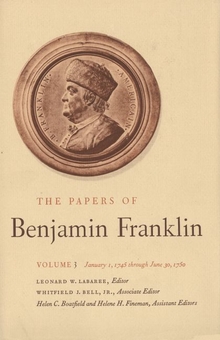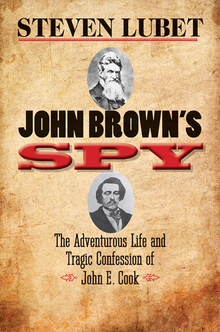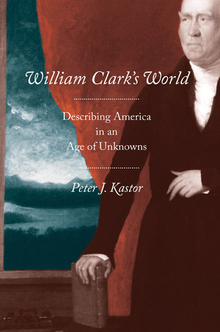The Nation's Crucible
WARNING
You are viewing an older version of the Yalebooks website. Please visit out new website with more updated information and a better user experience: https://www.yalebooks.com
The Louisiana Purchase and the Creation of America
Peter J. Kastor
In 1803 the United States purchased Louisiana from France. This seemingly simple acquisition brought with it an enormous new territory as well as the country’s first large population of nonnaturalized Americans—Native Americans, African Americans, and Francophone residents. What would become of those people dominated national affairs in the years that followed. This book chronicles that contentious period from 1803 to 1821, years during which people proposed numerous visions of the future for Louisiana and the United States.
The Louisiana Purchase proved to be the crucible of American nationhood, Peter Kastor argues. The incorporation of Louisiana was among the most important tasks for a generation of federal policymakers. It also transformed the way people defined what it meant to be an American.
Peter J. Kastor is assistant professor of history and American culture studies and assistant director of American culture studies at Washington University in St. Louis. He is the editor of The Louisiana Purchase: Emergence of an American Nation. His articles on the Louisiana Purchase have appeared in The Journal of the West, The William & Mary Quarterly, and Journal of the Early Republic.
"Peter Kastor has raised the study of expansion in the Early Republic to a higher level, gracefully piecing back together foreign and domestic policies, examining local as well as international diplomacy, and including the interests of all peoples on the frontier. The Nation’s Crucible forces us to consider the anxiety and uncertainty that Jeffersonian Americans felt about attaching the Louisiana Purchase to the new nation, while demonstrating how central the incorporation of Louisiana was to the formation of national identity."—Daniel Usner, Vanderbilt University
"Oftentimes the Louisiana Purchase is written off as a singular act of the Jefferson Administration, a grand real estate transaction which doubled the size of the United States. But historian Peter J. Kastor, in his first-rate The Nation’s Crucible, takes the story further. With keen analytical insight and a thorough grasp of primary sources from the era, Kastor shows how the Purchase forever changed the course of American politics. A truly fine achievement."—Douglas Brinkley, Director of the Eisenhower Center for American Studies and Professor of History at the University of New Orleans
“By explicating the human consequences of the Louisiana Purchase, Peter J. Kastor’s The Nation’s Crucible adds a fresh and vital chapter to our understanding of the American experiment.”—Jon Kukla, author of A Wilderness So Immense: The Louisiana Purchase and the Destiny of America
"Peter Kastor’s brilliant new book shows how Louisianans became Americans, and in the process transformed the very meaning of nationhood itself. Far more than the history of a single state, The Nation’s Crucible will transform our understanding of state-making, nation-making, and race-making in an expanding federal union. It is a superb addition to the literature."—Peter Onuf, University of Virginia
"Moving beyond the usual focus on the territorial expansion of the United States, Peter Kastor’s compelling book persuasively tackles the more complicated question of the incorporation of Louisiana into the American nation."—Stephen Aron, UCLA and Autry National Center
"A most welcome addition to the bicentennial literature on the Louisiana Purchase, Peter Kastor’s compelling book moves beyond the usual focus on the mere territorial expansion of the United States to tackle the more complicated—and more important—question of the incorporation of Louisiana into the American nation."—Stephen Aron, UCLA and Autry National Center
"This book is a work of impressive intellectual maturity that brings Louisiana—and therefore Kastor himself—into the center of an important and very timely discussion about the contested meanings of citizenship, statemaking, and nation-building." —Gregory Nobles, American Historical Review
"[An] interesting and useful addition to the scholarship on the development of the American community. . . . Clear and well-written. . . . Accessible to the general reader while being most useful in upper division or graduate college courses. . . . An outstanding work."—Donald E. Heidenreich, Jr., Arkansas Historical Quarterly
“Kastor tells an important and extraordinarily complex story in an interesting and accessible manner. He deftly weaves foreign policy, national politics, and territorial history while not slighting any of these perspectives. His study will become the standard for territorial Louisiana. . . . Kastor’s blending of multiple perspectives . . . sets a standard that other scholars of Louisiana history should emulate.”—John M. Sacher, H-Net
"[A] very fine study of the purchase of the Louisiana Territory and the subsequent struggles over the governance and incorporation of that section of it that would become the state of Louisiana."—Itinerario
"[A] vivid and compelling book."—Kathleen DuVal, Journal of American History
"A complex, nuanced study, ambitious and sophisticated, and a fine contribution to the literature."—David Sloan,
Louisiana History
"Should be read by serious students of the early American nation."—John Lauritz Larson, Western Historical Quarterly
"An outstanding book which looks beyond the hoopla and flag-waving associated with the Louisiana Purchase to examine just how the expansion of the United States—geographic and demographic—worked on the ground. Rather than assume a narrative of national expansion Kastor introduces an element of contingency into the story and considers how all of those concerned dealt with the challenges and opportunities that faced them after 1803."—Frank Cogliano, Journal of American Studies
Publication Date: October 12, 2012
1 map


